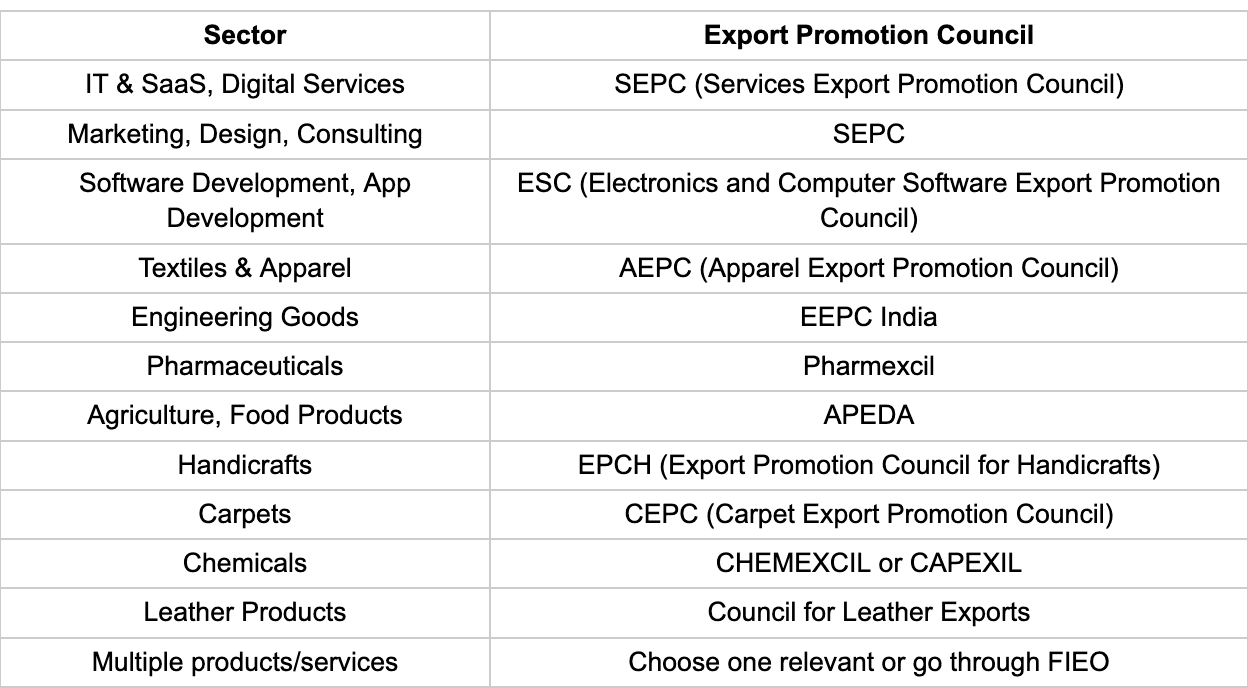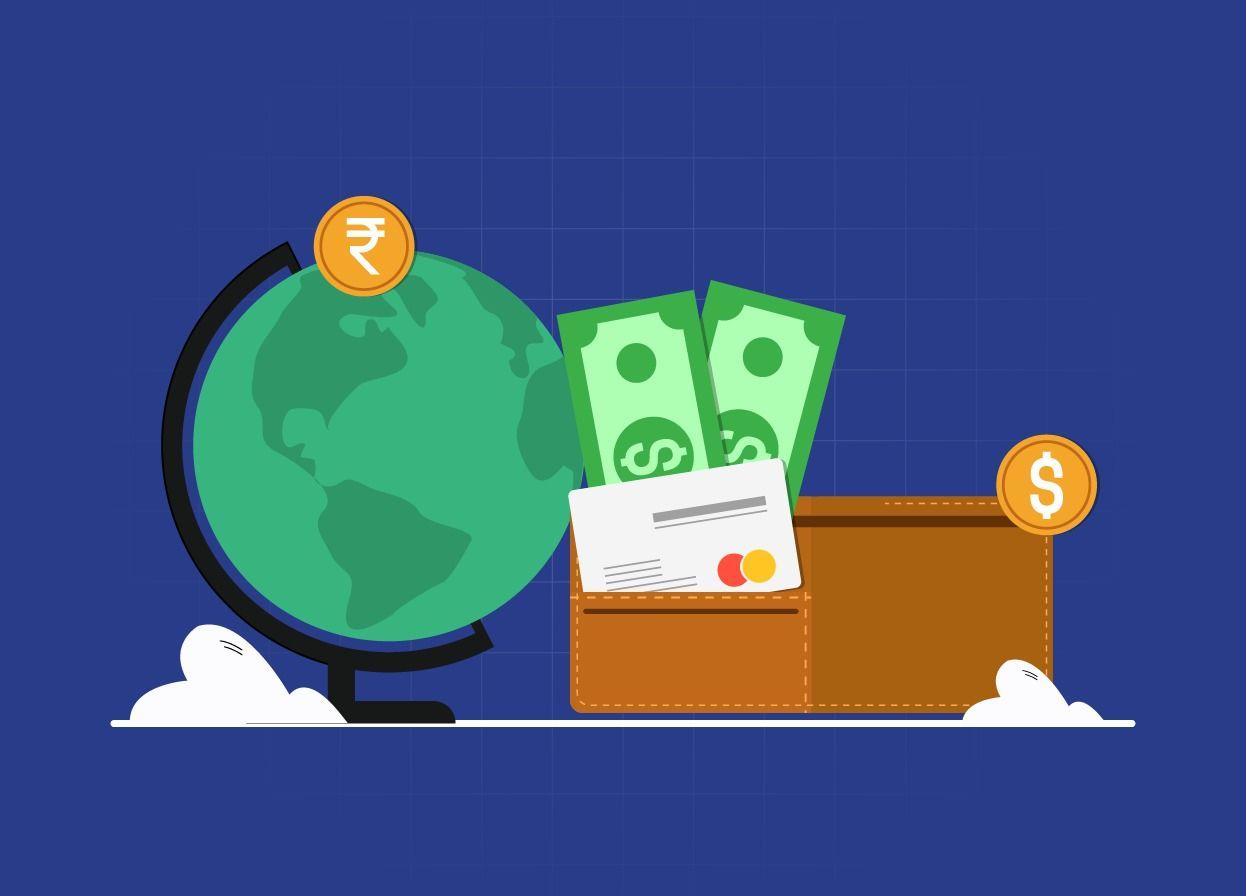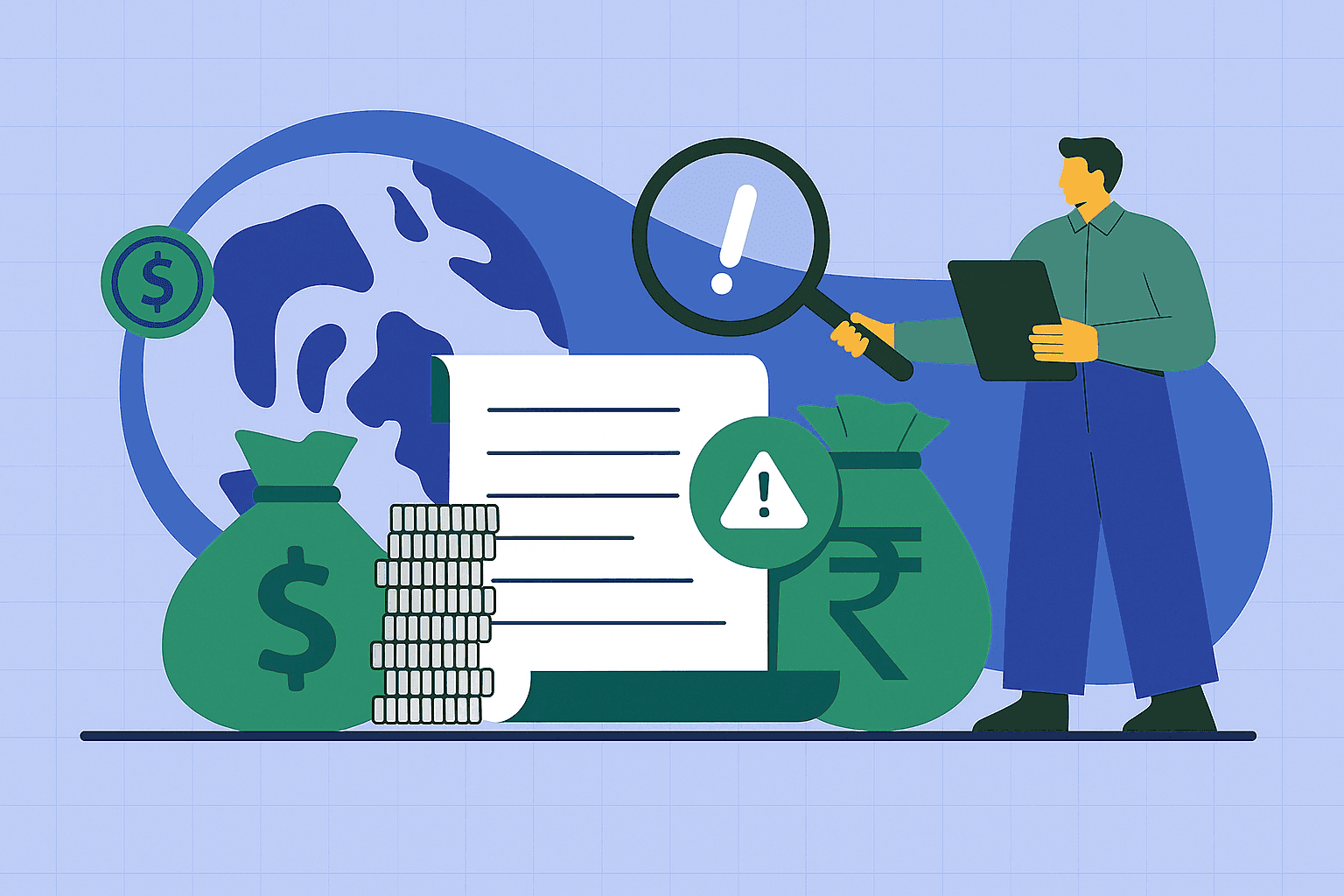RCMC Registration: How It Can Help You Grow Your Export Business

Imagine you're trying to grow your export business, and suddenly you're overwhelmed with all these acronyms like EPC, SEPC, and FIEO. Meanwhile, you just want to know: will the RCMC registration certificate help your business, or is it just another compliance headache?
Whether you're exporting software, design services, or physical goods, an RCMC registration certificate unlocks genuine benefits. But it's not mandatory for everyone, and the decision depends on what you're actually trying to achieve.
This guide is actionable, non-technical, and tailored for real use cases. By the end, you’ll know whether you need RCMC registration, which council to choose, and how to avoid costly mistakes during the RCMC registration process.
What Is RCMC Registration?
RCMC stands for Registration-Cum-Membership Certificate. Think of it as your official membership card to India's export ecosystem.
RCMC is issued by government-authorised bodies that promote exports in specific sectors. The Director General of Foreign Trade (DGFT) has authorised 35 organisations to issue RCMCs, and these fall into three main categories:
Export Promotion Councils (EPCs): These handle most product and service categories. For example, if you're exporting software or IT services, you'd get your RCMC from the Electronics and Computer Software Export Promotion Council (ESC). It's the Services Export Promotion Council (SEPC) if you're in services like consulting or design.
Commodity Boards: These focus on traditional exports like spices, tea, and coffee. So if you're exporting cardamom or Darjeeling tea, you'd go to the respective commodity board.
Development Authorities: These handle specialised sectors like APEDA for agricultural products or MPEDA for seafood exports.
The government has divided India's export ecosystem into 35 specialised departments, each responsible for promoting and regulating exports in its area. Your RCMC comes from whichever department covers what you export.
What if you export multiple things?
If an exporter deals in multiple products across various EPCs, FIEO can issue the RCMC. FIEO (Federation of Indian Export Organisations) can issue the RCMC. Think of FIEO as the "miscellaneous" category; it's designed for exporters who don't fit into the standard 35 specialised councils.
When should you use FIEO?
- You export multiple different products (say, both handicrafts and spices)
- Your business doesn't fall under any specific council
- You're still figuring out your primary export focus
- You're a large exporter dealing with various product categories
The RCMC is valid from the issuance date on the 1st of April of the licensing year and is valid for five years, concluding on the 31st of March. So you're not dealing with annual renewals; once you get it, you're set for five years.
For example, if you apply for RCMC in December 2024, your certificate will be valid from April 1, 2024, to March 31, 2029. Even though you applied in December, the validity starts at the beginning of that financial year (April 1st) and runs for a full five-year cycle.
If you apply late in a financial year (say, in February), you'll get a shorter first year but then a whole five-year period. It's tied to India's financial year calendar, not your application date.
RCMC is mandatory for some export schemes and benefits, but optional for others. You can technically export without it, but you'll miss out on government incentives, duty benefits, and access to trade promotion activities that could grow your business.
Who Needs RCMC, and Who Doesn’t?
The short answer is: it depends on your goal.
You need RCMC if:
You want to claim benefits under export promotion schemes
This is where RCMC becomes non-negotiable. Certain schemes require compulsory RCMC registration.
For example, participating and claiming reimbursement under Market Access Initiative (MAI) requires RCMC.
Further, if you're using schemes like Advance Authorisation (where you import raw materials duty-free for exports) or EPCG (Export Promotion Capital Goods), RCMC is mandatory.
You deal in products/services that fall under a specific Export Promotion Council
RCMC is compulsory for certain products. For example, Exporters of handicrafts and handloom products may need RCMC from the Handloom Export Promotion Council or the relevant authority in Jammu & Kashmir.
Similarly, exporters of tea need RCMC from the Tea Board of India, and exporters of spices require an RCMC from the Spices Board of India.
You want to participate in DGFT/Ministry-sponsored trade fairs, delegations, and buyer-seller meets
To qualify for MAI Scheme benefits like participating in shows abroad, exchange fairs, and business delegations, an exporter must hold an RCMC for at least one year.
❌ You may not need RCMC if:
You're exporting services under no specific scheme and aren't availing benefits
Suppose you're a freelance designer working with international clients through platforms like Upwork or a small software consultancy doing project work, and you're not claiming any government incentives. In that case, you can technically operate without RCMC. RCMC is not required for exporters who are not claiming any benefit under FTP and are voluntarily not seeking EPC/Board support.
You're just starting with occasional freelance projects
If you're testing the waters with small-scale service exports and haven't decided whether you want to scale this into a serious business, you should wait. But here's the thing, even freelancers often hit the limits of what they can do without RCMC faster than expected.
For schemes like RoDTEP, Duty Drawback, etc.
Last year, the DGFT clarified that RCMC registration is not required to claim benefits under schemes like RoDTEP, Duty Drawback, RoSCTL
Which Export Promotion Council Should You Register With?
Once you've decided you need RCMC, the next crucial step is choosing the right Export Promotion Council, because your RCMC comes from them, not directly from the Indian government. Get this wrong, and you'll either face delays or end up with the wrong benefits entirely.
Many exporters struggle with this: staring at a list of 26 Export Promotion Councils and 9 Commodity Boards, wondering where they fit in. However, it's actually simpler than it looks once you understand the basic rule: choose based on what you export, not your company type.
Here are the most common scenarios:

For Service Exporters: If you're exporting services like consulting, design, marketing, or digital services, SEPC is your go-to. If you're developing software products (not just providing development services), you might fall under ESC instead.
For Product Exporters: If you're exporting physical goods, match your primary product to the relevant council. The councils are pretty specific, carpets go to CEPC, textiles go to AEPC, and engineering goods go to EEPC India.
The FIEO Option: FIEO (Federation of Indian Export Organisations) is the wise choice for many exporters. You need FIEO when:
- Your export product doesn't fit neatly into any specific council
- You're a multi-product exporter dealing in various categories
- Your main line of business isn't settled yet
- You're a status holder (recognized export house)
Multi-product exporters often assume they need multiple RCMCs from different councils. Not necessarily true. You can get separate RCMCs from each relevant EPC or a consolidated RCMC from FIEO. The Government recognises FIEO as an Export Promotion Council specifically for this purposethey handle the "miscellaneous" category and multi-product scenarios.
Even if you pick the "right" council initially, you're not locked in forever. Your business evolves, your export focus changes, and you can always register with additional councils or switch to FIEO if that makes more sense.
A quick decision framework:
- Single product/service, clear category → Register with the specific council
- Multiple products across different categories → Consider FIEO for simplicity
- Unclear about your primary export focus → Start with FIEO, you can always add particular councils later
- Service business but also developing products → Start with SEPC, add ESC if product exports become significant
Benefits of RCMC Registration
Access to government subsidies under MAI and other schemes
Market Access Initiative (MAI) covers airfare, stall costs, and registration fees for international exhibitions. We're talking about reimbursements that can run into lakhs for a single trade fair. SEPC members get subsidised participation in international exhibitions and buyer-seller meets, where actual business happens.
Participation in international trade events at subsidised rates
EPCH organises the Indian Handicrafts & Gifts Fair with thousands of international buyers. Without RCMC, you're paying full price (if you can even get in). With it, you get subsidised stalls and priority access.
Inclusion in official export databases
Getting an RCMC from export promotion councils like ESC or SEPC isn’t just a formality—it gets you listed in official directories that international buyers actually refer to.
ESC’s 2000+ members from the Electronics and Computer Software/ITeS industry are part of searchable export databases. SEPC goes a step further by facilitating global market access through collaborations with Indian Embassies. No RCMC, no listing. No listing, no visibility,
Easier to apply for export incentive schemes, trade finance, and certifications
RCMC is often a prerequisite for bigger benefits. Want to apply for the Interest Equalisation Scheme? You'll need RCMC. Looking at Export Promotion Capital Goods (EPCG) benefits? RCMC required. It's your gateway document.
The thing most people underestimate
EPCs don't just give you a certificate and disappear. They actively work on your behalf, lobbying for policy changes, organising events, providing market intelligence, and connecting you with buyers. SEPC members are eligible for visa facilitation for their international business visits, which can cut weeks off your travel planning.
Step-by-Step: How to Apply for RCMC in 2025
Since 2022, almost everything has happened through the DGFT's common digital platform, which means no more running between offices with a physical application form.
Step 1: Get an IEC code from DGFT website (mandatory)
You can't even start without this. IEC (Import Export Code) is your basic export license, a prerequisite for RCMC. If you don't have one, apply through the DGFT portal first.
Step 2: Identify the correct EPC for your sector
Use the table from the previous section. When in doubt, FIEO works for most multi-product or unclear scenarios. Remember: it's based on what you export, not your company structure.
Step 3: Prepare required documents
The essentials everyone needs:
- PAN
- IEC certificate
- GST certificate
- Business incorporation proof (MOA/AOA for companies, partnership deed, etc.)
- Export performance certificate (CA-certified, or NIL certificate if you haven't exported yet)
💡Pro tip: Most rejections happen because of incomplete documentation. Get your CA to certify your export data upfront, even if it's zero.
Step 4: Apply on the DGFT's e-RCMC portal
Since 2022, almost all councils have used the common DGFT platform at dgft.gov.in. Here's the reality:
- Log in with your IEC credentials
- Navigate to Services → e-RCMC → Apply for e-RCMC
- Choose your council and fill out the application
- Upload documents (keep file sizes reasonable)
- Pay the fee online (usually ₹2,000–₹5,000 annually, plus GST)
The fee structure is pretty straightforward: Most councils charge similar amounts. SEPC, EEPC, and others typically range from ₹2,500-₹5,000 per year, with some offering multi-year discounts.
Step 5: Get your RCMC certificate
The official line is "5-7 working days," but here's what usually happens:
- ✅ All documents perfect? You might get it in 5–7 days (rare, but possible)
- 📝 Minor clarifications needed? Expect 10–15 days
- ❌ Document issues or resubmissions? It can take 3–4 weeks
The certificate gets issued electronically through the portal. You'll get email notifications, and you can download the certificate directly from your dashboard.
Keep your IEC profile updated on the DGFT portal before applying. Half the delays happen because of a mismatch in information between your IEC and RCMC application form.
📚Note: The process is smooth primarily now, but each council has slight variations in its document requirements. Check the specific council's requirements on their section of the DGFT portal before uploading documents.
Common Mistakes to Avoid in Your RCMC Registration
Here are the common RCMC registration mistakes you must avoid:
Registering under the wrong EPC
This happens more than you'd think. A software company registering with EEPC instead of ESC, or a design consultancy going to FIEO, when SEPC would be better. The councils are specific for a reason—wrong choice means wrong benefits, network, or everything.
Not understanding the renewal cycle
RCMC validity is on a financial year (FY) basis, meaning it expires on March 31st. If you get your RCMC in December, it expires the following March, not 12 months later. Members are advised to renew their membership well, e.g., before 31st March, to avoid any disruption in shipment/trade-related services. If you miss the renewal deadline, your shipments could get held up.
Missing export opportunities by not joining SEPC if you export services
This is the big one for freelancers and consultancies. You're focusing on getting clients while missing out on Government of India subsidies for international marketing, trade fair participation, and export incentives. SEPC provides opportunities to participate in policy formulation and influence favourable trade policies; you want a seat at that table.
Assuming FIEO is always the fallback option
FIEO works great for multi-product exporters, but the specialised councils offer better networking and more relevant benefits if you have a clear sector focus. Don't go generic when you can go targeted.
Not keeping export data updated
Members must submit a certificate from a Chartered Accountant certifying the annual export turnover for the financial year. This isn't just paperwork; councils use this data to advocate for your sector and determine fee structures.
Make the Most of Your Export Payments with Skydo
Once you’ve got your RCMC sorted and start landing international clients, a new challenge shows up: getting paid without losing a chunk of your earnings.
Banks often slip in hidden forex markups and confusing fees. You may not even realise how much you're losing, sometimes as high as 1–8% of every payment.
That’s why many exporters now use platforms like Skydo. You get global bank accounts in major countries like the US, UK, and Canada set up in minutes. Payments come in faster, fees are transparent, and everything’s trackable.
It also takes care of compliance. FIRA is generated instantly, and you’re not chasing paperwork weeks later.
For many businesses, that’s meant real savings, up to ₹10 lakh a year. Not magic. Just money that’s no longer leaking through the cracks.
Is RCMC mandatory for freelancers exporting services?
RCMC is not mandatory for basic service exports, but is required to claim government benefits like MAI subsidies and trade fair participation. Most serious exporters get it anyway.
How long does RCMC registration take?
Can I apply for RCMC online?
Can I register under multiple EPCs?












